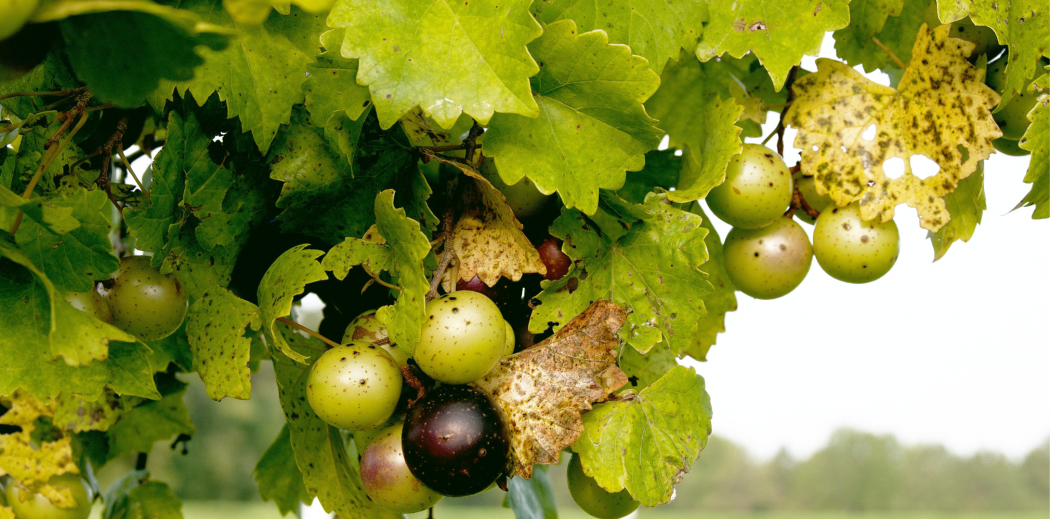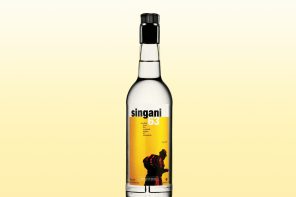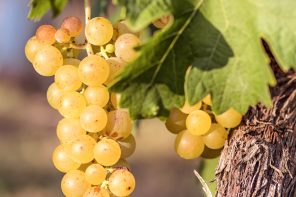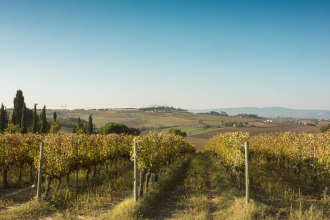Merlot. Zinfandel. Cabernet Sauvignon. These are the grape varietals of the wines we know and love. But have you heard of Carlos, Scuppernong, Noble, Doreen, or Magnolia? No, they’re not a band – they’re muscadine grapes, and they are the healthiest grapes in the world.
According to an in-depth study, muscadine wines contain a surprising amount of healthy phenolic compounds. Um, what are phenolic compounds? They are naturally occurring chemicals found in the skin of these grapes that act as antioxidants in the body. Researchers found that they actually offset the free radicals released by the liver as it processes alcohol. What does that mean? It means the grape part of the wine fights the alcohol part of the wine, and your insides are happy while you’re busy getting tipsy. It’s a win-win.
The battle between antioxidants and free radicals isn’t unique to muscadines, but wines made from this sweet grape are more likely to win over the damaging effects of alcohol. In fact, red muscadine wine has 3 – 4 times more phenolic compounds than Cabernet. And some of these compounds, like ellagic acid, are even thought to be cancer-fighters too. Which means muscadine wine heals more than it hurts.
If you’re from the southeastern United States you may already be familiar with this grape. They’re happiest growing in the warm, sandy earth naturally available in states like Florida and North Carolina. Life can be tough in these growing conditions, so muscadine grapes are known for their thick skins that keep them alive and happy. And, under that thick skin is a big, juicy fruit just waiting to be made into wine. Muscadines tend to grow bigger than the vitis vinifera grapes that are used to make traditional California or European-style wines, which is why the wines they produce usually end up tasting more sweet.
Even though some wineries might talk of dry muscadine wines or offer blends, just understand that they’re speaking relatively. These babies are sweet (and they make the perfect addition to a summer sangria, just saying). Even blends with, say, Merlot grapes from California will be overwhelmed by the sugary taste of muscadine. So be prepared, but don’t be fooled by the sugary sweetness. This wine has some major benefits for your health – even more than red wine, the health benefits of which have been debated for thousands of years.
Which means, ladies and gentlemen, a muscadine wine a day keeps the doctor away.









so…..give me a name of a store bottle with muscadine? all i see is merlot and cabs, etc….so where do we find a label musscadine?
Hey Herbert! You would want to look for bottles that say Carlos, Scuppernong, Noble, Doreen, or Magnolia on them, rather than Merlot, Cab, etc., as you pointed out. Thanks for your interest in Muscadine and be sure to let us know what you think!
Is the sugar content higher? Are they more caloric or does it just taste sweeter? And is a blend not as healthy?
Hey Kate! Great questions. The sugar content in Muscadine grapes does tend to be just a little higher on average than grapes of the vitis vinifera variety (Merlot, Cab, etc.), which also means it may have slightly more calories. If you’re interested in learning about the calories in wine check out our article about it here. And as for blends, wines with mixed juice are not less healthy because of it. For more information on this, check out this article!
So, are you saying that the Carlos Rossi wines are actually mucadine wines?? I guess i’m still trying to see if I can find it in Michigan. thanks
Hey Anitra! So what we’re saying is that Carlos, Scuppernong, Noble, Doreen, and Magnolia are all names of grapes (not brands) that are of the Muscadine varietal. Muscadine grows most happily in the South East (think: Florida and the coast off the Gulf of Mexico), so you’d want to look for wines from that region that explicitly say “Muscadine” or one of the grape names listed above. Be sure to let us know what you think!
Ahh, i get it now. Thank you for the quick reply. I am planning a trip to the wine castle to see if i can find any. Thanks
Lakeridge Winery in Clermont, Florida produces a variety of wines, mostly from muscadine grapes I believe. It’s simply too hot and humid to grow many of the varieties with thinner skins.
Hi Chelsea! Always nice to hear someone talking about the health benefits of Muscadine wine. My family actually grows and produces Muscadine wine here in the Napa Valley at Spiriterra Vineyards. My father, who grew up in Georgia eating Muscadines, planted the vineyard in 2009. It has done surprisingly well out here. In 2012 we released our first semi-dry and sweet Muscadine wines, and in 2014 produced our first Rose! It’s been fun introducing the west coast to this delicious and unusual varietal.
Is muscadine the same as moscato & muscatel?
Ken – no, not at all. Moscato & muscatel are made from the Muscat grape, named after the ancient city of Muscat in Oman, near the Persian Gulf. Muscadine is a different grape species entirely, native to North America.
Duplin Winery in SC have great wines!